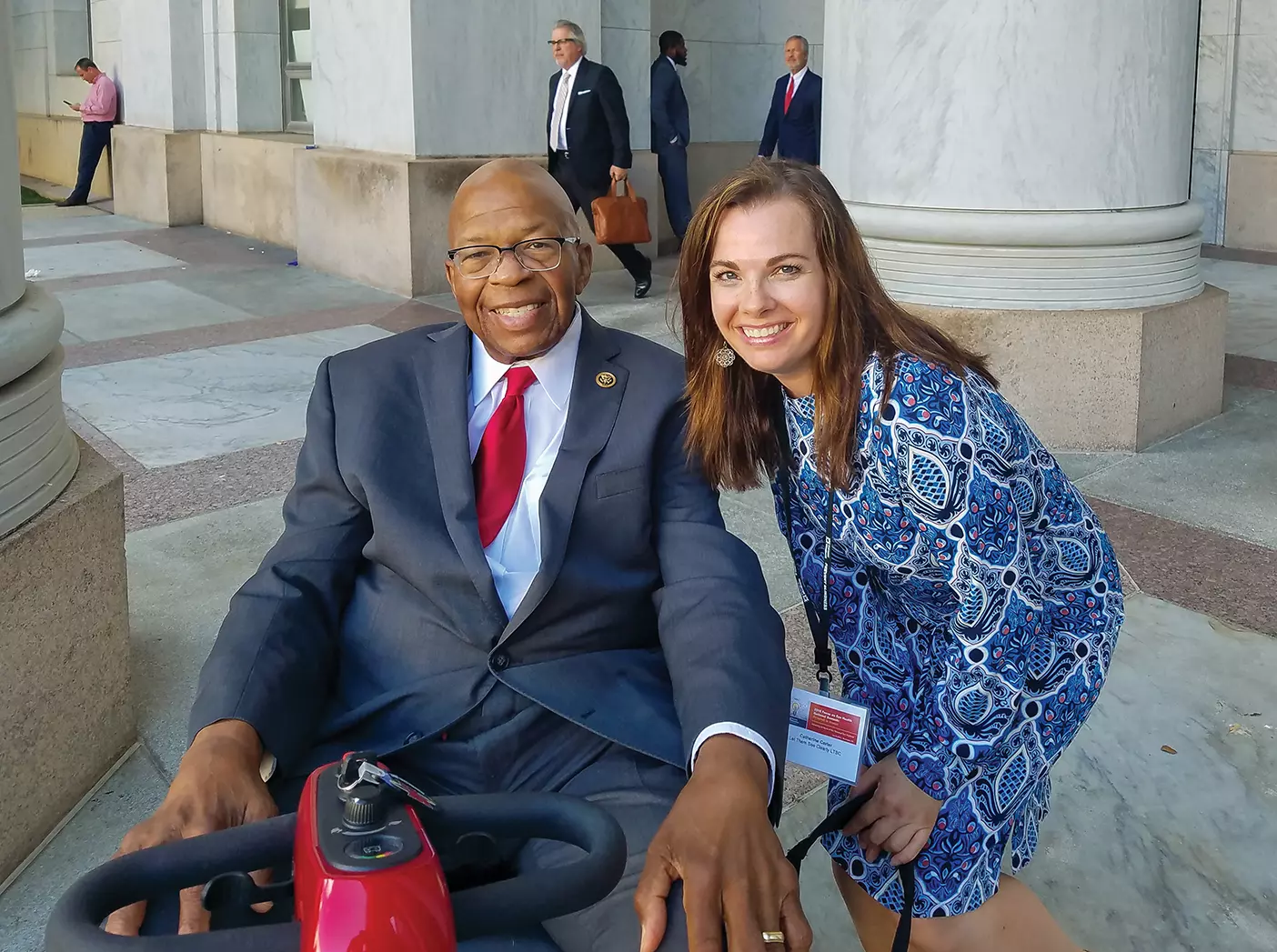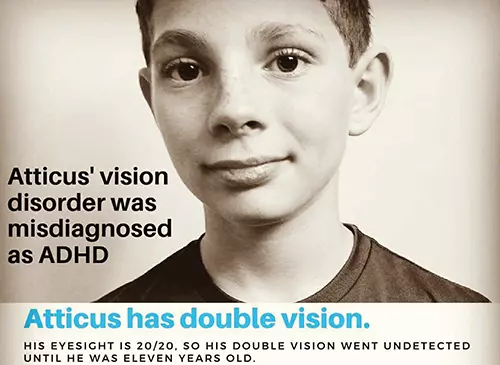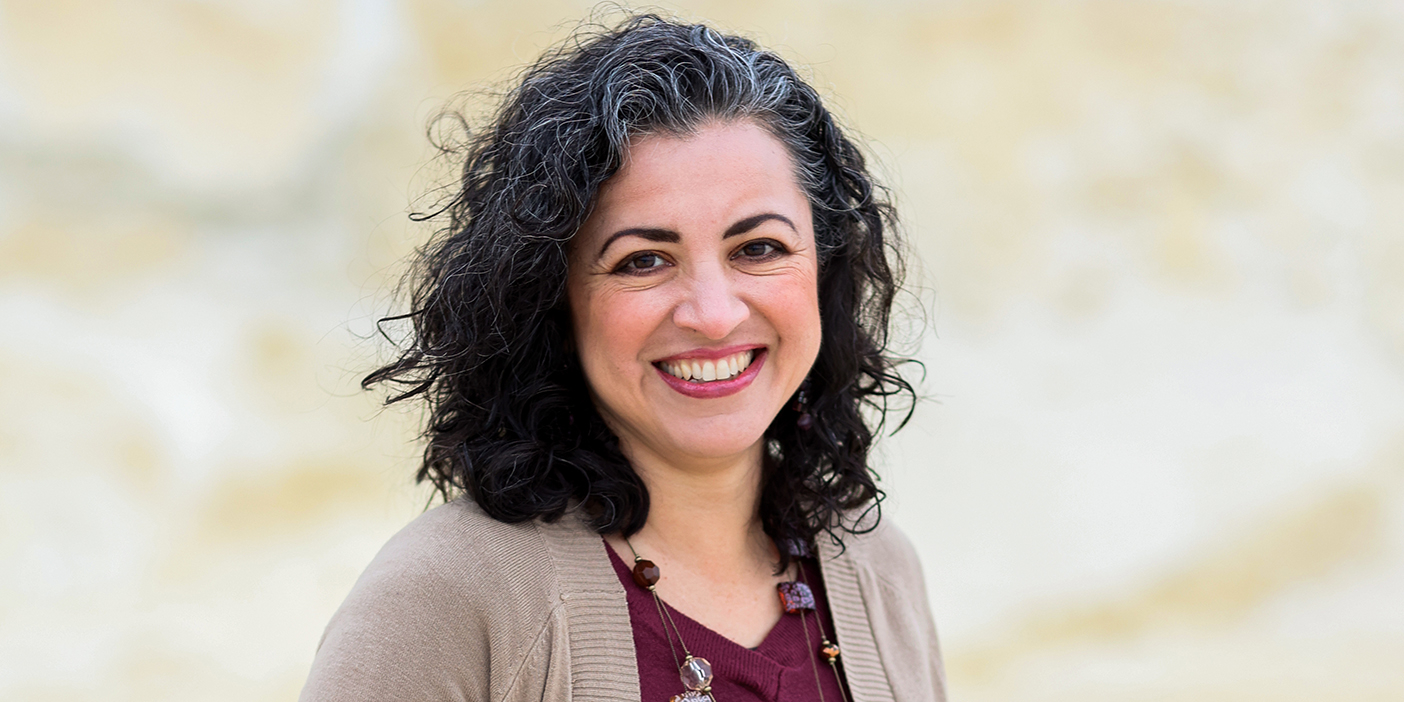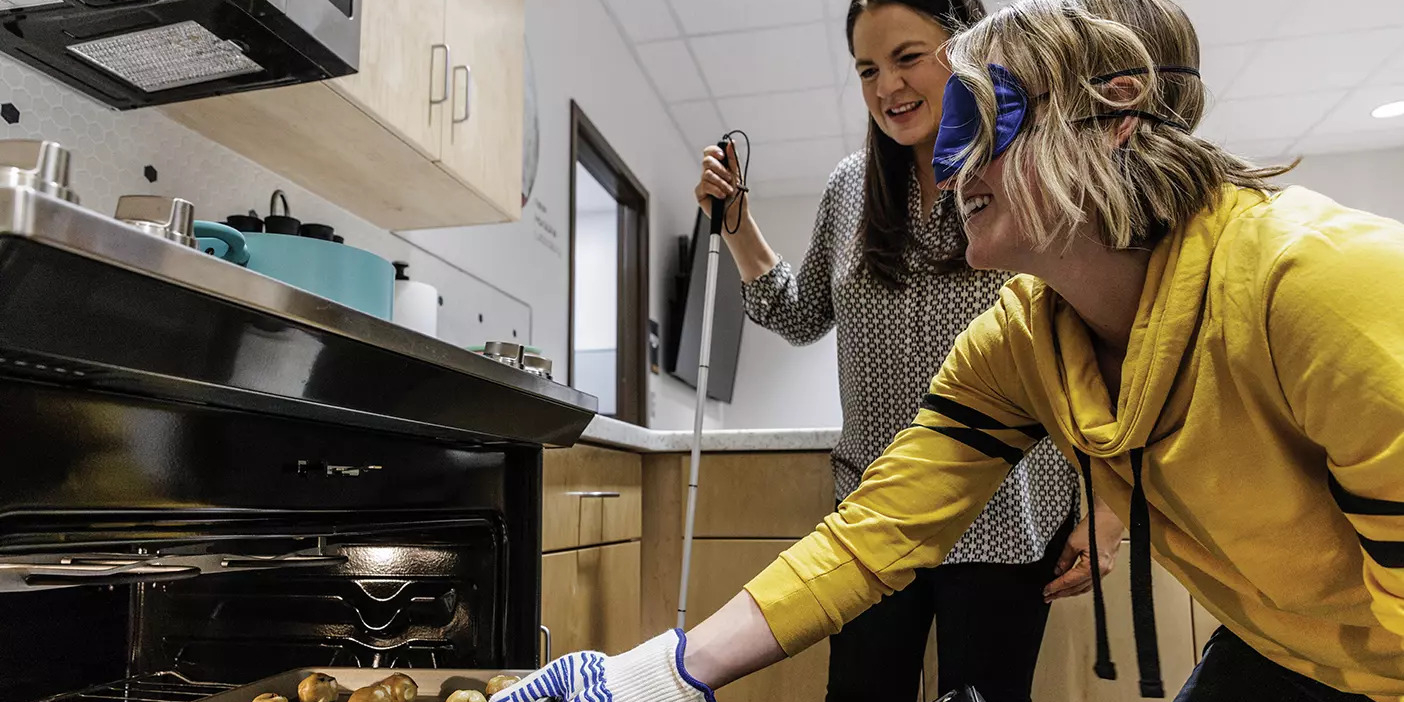A mother made it her mission to improve accommodations for children with vision impairment.

“I’ve never done anything like this before,” Catherine Coleman Carter (BA ’02) told herself in 2017, as she prepared to advocate for a bill to help her seventh-grader son, Atticus.
Atticus had long struggled with reading—words would blur together and go double, and it gave him severe headaches. When eye screenings showed that his eyes each saw 20/20, he was diagnosed with ADHD. Finally, an eye exam revealed Atticus’s actual problem—diplopia, or double vision.
Despite finally having a diagnosis, Atticus’s school argued that double vision didn’t qualify as a visual impairment, and he was denied vision-disability accommodations. And so Carter petitioned first the school, then the district, and eventually the U.S. Department of Health for better accommodations for students with non-acuity visual impairments.
The road was long and filled with obstacles—along the way Carter suffered a debilitating concussion and endured a tornado that damaged her house and almost took the life of her newborn. Still, this mother of five persevered, not only for Atticus but for all kids who suffer similar difficulties. Carter says her time at BYU taught her that “you’re there to make the world better. They give you the learning, they give you the skill set, but then you’re supposed to go forth into the world.”
Even after the school district sent a memorandum requiring all visual impairments that impact a student’s education to be addressed—granting Atticus the accommodations he needed— Carter continued her advocacy for children with vision disabilities.
She worked with Maryland legislators to pass the Atticus Act, a law that provides education for parents on signs and symptoms of vision disorders and guides them to local vision-care resources. The bill passed in under two years—an almost unheard of speed, Carter says. “That just shows you democracy works—perseverance, compromise, and working with others actually make things happen,” she says. The Atticus Act continues to help identify kids who are needlessly struggling to see and learn.

Through her organization Let Them See Clearly, Carter has opportunities for constant growth as she seeks to connect the parents of struggling students with local resources. In addition to advocating for the Atticus Act, Carter has used her newfound skills to push for more bills to help youth, advocate to Congress to add military personnel training on screening for vision disorders from traumatic brain injuries, and manage an eye-exam clinic for her school district—conducting 168 exams and distributing 117 pairs of glasses in two days.
After navigating so many bureaucratic labyrinths, Carter sees her own path clearly: “God put me on this earth to make it better, to leave it better than it was.”
SERVICE STORIES: In Going Forth Y Magazine shares stories of alumni making the world a better place by serving in their communities, congregations, and homes. Let us know when you see an alum going about doing good. Send your nominations (and any photos) to alumninews@byu.edu.












